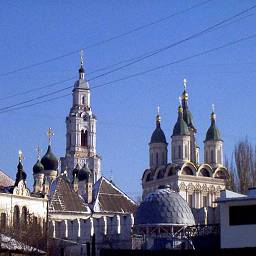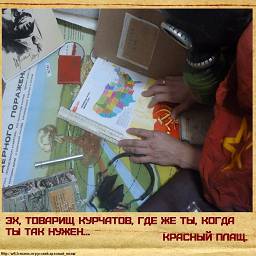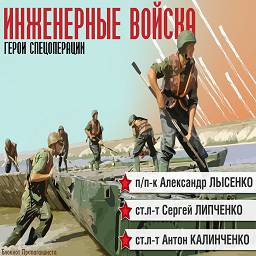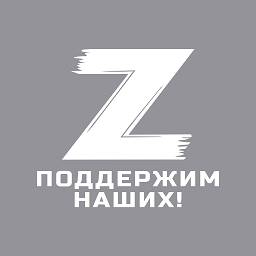Путь:
Quick Links
Language [ ENGLISH РУССКИЙ ]
Search
Подписка и соц. сети
New Materials
- Buy instagram followers 2020-09-09
- FISCAL FEDERALISM THE CANADIAN EXPERIENCE 2020-03-22
- Analysis of differentiation of socio-economic development of the Russian regions 2020-03-22
- Economic development in the Russian regions institutional and macroeconomic problems 2020-03-22
- Russias North Economic Problems of Development 2020-03-22
- Problems of Fiscal Federalism in Russia 2020-03-22
- REGIONAL ASPECTS OF THE FEDERAL ECONOMIC POLICY 2020-03-22
- THE TELEVISIONS PROJECT 2020-03-22
- Journeys into History Through the Future 2020-03-22
- Artists Bring the Computer to Life 2020-03-22
- Culture in the Upcoming Millenium 2020-03-22
- What is a work of telecommunicative art 2020-03-22
- Tatiana Didenko Executive Producer 2020-03-22
- ABC Amber Conversion and Merging Software 2019-12-08
- Human-Rights Journal Finds Survival Hard in New Russia 2018-03-12
Картинка недели
Union maniac
Evaluation section:
0
Union Punk is a wide circle of like-minded people who respect the era of the Soviet Union.
In many cities and countries of the former USSR there were fans who willingly share their memories with the same fans.
Proud of old times, constantly compare reality with the past.


Категории
The issue focuses on the results of the Moscow G-7 plus Russia Safety and Security Summit
Date of publication: 2017-11-22 13:51:38Дата модификации: 2017-11-22 13:51:38
Views: 1318
The article is timed to the date: 1996-01-01
Other articles related to: Date1996-01-01 Articles for: Year1996
Author: admin
# The issue focuses on the results of the Moscow G-7 plus Russia Safety and Security Summit. It publishes the Moscow Nuclear Safety and Security Summit Declaration, the Programme for preventing and combating illicit trafficking in nuclear material, the Statement on the Comprehensive Nuclear Test Ban Treaty, as well as a background document on nuclear safety and security and the Summit chronology. "We should clarify why the Moscow Summit has received such a little resonance, why there have been reproaches like "there was no necessity for the Summit" and that "elephants bore a mouse". Are these reproaches well-founded?", the PIR Center Director Vladimir Orlov asks. His detailed article describes the background and the process of the meeting and analyzes its final documents. Issues regarding nuclear smuggling, a nuclear test ban, and shut-down of the Chernobyl NPP are considered in the light of the Summit. Special attention is given to the recent promising initiatives regarding non-deployment of nuclear weapons outside national territories and regarding creation of nuclear-weapon-free zones (NWFZs), first of all in Central and Eastern Europe, though they were not reflected in the Summit documents. "The results of the Moscow Safety and Security Summit are not so sparse as they might at first appear," Vladimir Orlov concludes. "The documents adopted on the Summit results, as well as the statements made during the Summit, raise a number of key problems, set objectives before the G-8 governments and indicate ways of solving them." The major result of the meeting is that Russia has returned to the political scene as a great power and that the dialogue on nuclear safety was conducted on an equal basis.
# The Interview of the Month section presents an interview by the Yaderny Kontrol editor-in-chief with Presidential Aide for National Security Yuri Baturin. Commenting on the results of the Summit, he underlines that all G-8 leaders realize their special responsibility for strengthening nuclear energy safety and give up "radiophobia." Speaking of Russia's stance toward the problem of illicit nuclear trafficking, Yuri Baturin states: "We admit the existence of this problem and the threat that illicit nuclear trafficking, even with small quantities of nuclear materials, poses... According to analysis of the recently detected cases of illicit nuclear trafficking, stolen materials in all cases were not weapons-grade nuclear materials... On the territory of the Russian Federation there are currently no organized criminal rings that specialize in this area only." He describes the creation of a special commission of Russia's government that is in charge of all problematic issues regarding the nuclear weapons complex and about the process of implementation of The State Program of the Russian Federation for creating and equipping with physical protection systems facilities of the nuclear weapons complex, of atomic industry, of power engineering and research facilities of the Atomic Energy Ministry of the Russian Federation and facilities of the Defense Ministry of the Russian Federation. Yuri Baturin gives high marks to the international cooperation to prevent and combat illicit trafficking in nuclear material, saying that it has been primarily carried out on a bilateral basis because of the sensitive character of relevant information and that Russia's closest contacts in combating illicit nuclear trafficking are with Germany. The Presidential Aide lays out the principles of bilateral cooperation, including "strict control over or even, if necessary, prohibition of transfer to the mass media of specific facts" of illicit trafficking in nuclear material until investigations are completed. Commenting on the importance of the indefinitely extended NPT, Yuri Baturin says that a worrying tendency has recently emerged when some Eastern European states, allegedly not clearly understanding this document, express their readiness to deploy nuclear weapons of other states on their territories. "At this stage it would be reasonable to concentrate joint efforts to promote the idea of creation of regional zones free from nuclear weapons and other types of weapons of mass destruction," the Presidential Aide underlines.
# An article by Deputy Director of MGIMO (the Moscow State Institute of Foreign Relations), Andrei Zagorsky, is dedicated to models of European security. "Beginning with 1995, a general and comprehensive security model for Europe for the 21st century has been discussed on Russia's initiative within the framework of the Organization on Security and Cooperation in Europe (the OSCE). The discussion has been focused on determining Russia's role and its place in this system," the author states. Russia's proposals regarding the coordinatory role of the OSCE have not been supported, and its attempts to prevent NATO's enlargement have been refuted as well. The scenario with EU and NATO's enlargement has become the prevailing tendency in European development since 1993. A. Zagorsky believes that such a "pluralistic concept of European security" has favorable possibilities, including the ones for Russia.
# Vladimir Chumak from the Ukrainian President's Institute for Strategic Studies analyzes prospects for NWFZs in Europe. He assumes that "Europeans are not interested in confrontation as a possible basis for a new European security system. Especially if the nuclear component becomes a basis of the balance of forces." V.Chumak comes to the conclusion that the idea of a NWFZ in Europe is viable in the current situation, though refrains from drawing exact borders of the supposed NWFZ. The author believes that the future of such a zone in Europe to a large extent depends on the positions of Russia and the United States.
# "Will the START-II Treaty be ratified?" Two alternative answers are given to this pressing question in Russia. Retired Major General Vladimir Belous believes that it would be reasonable to ratify the Treaty, but at the same time to negotiate with the United States on amendments giving due consideration to Russia's interests. He suggests that the START-II implementation term be extended to 2006-2008, the statement on inadmissibility of revision of the ABM Treaty or of withdrawal from it be adopted, Russia's ability to increase its "breakout" potential be stipulated for, and heavy missiles be the last to be decommissioned (within the START-II Treaty term). Anton Surikov, consultant of the Institute of Defense Studies (INOBIS), gives another point of view, "in the current situation it is unreasonable to ratify the START-II Treaty without solving the problem of U.S. superiority in the area of "breakout potential" if Americans do not give reliable assurances of compliance with the ABM Treaty and the ABM Protocol after 2003."
# An article by Annette Schaper from the Frankfurt Peace Research Institute is dedicated to the problem of utilization of plutonium from dismantled Russian warheads. She gives a detailed analysis of the option of German-based production of the mixed-oxide (MOX) fuel using Russian plutonium. Analyzing all the pros and cons of the possible launching of a plant specially built for this purpose in Hanau, the author concludes that even if the "Hanau option" is accepted, it will take not less than 20 years to realize it, and the necessary precondition will be cooperation with the local authorities in Hessen.
Evaluation of the document:
0
Article description: It publishes the Moscow Nuclear Safety and Security Summit Declaration, the Programme for preventing and combating illicit trafficking in nuclear material, the Statement on the Comprehensive Nuclear Test Ban Treaty, as well as a background document on nuclear safety and security and the Summit chronology
Albums:
Other articles of the section: Union maniac
Previous SOVIET MEMORIALS AND MEMORABILIA IN St. PetersburgNextchairman of the Foreign Affairs Committee of the State Duma of the Russian Federation, supports the ratification of START II
Similar articles:
Nested sections



_косплей_совьет_панк.jpg)

_стенгазета_союз-маньяка.jpg)
_юмор_в_стиле_союз-маньяк.jpg)


